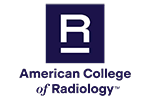Acute Onset Flank Pain—Suspicion of Stone Disease (Urolithiasis)
Urolithiasis, commonly known as kidney stone disease, causes solid crystalline stones to form in a person’s urinary tract.
People with kidney stones commonly experience flank pain (pain in the back of the torso between the ribs and pelvis), but flank pain can have many other causes. Imaging tests are used to diagnose and monitor kidney stones.
For people suspected of having kidney stones but with no prior history of stones, CT of the abdomen and pelvis without intravenous (IV) contrast is usually appropriate. X-rays of the abdomen and pelvis may also be appropriate.
For people with sudden-onset flank pain who have already been diagnosed with kidney stones on prior imaging tests, CT of the abdomen and pelvis without IV contrast is usually appropriate. Retroperitoneal ultrasound of the kidneys and bladder, x-ray abdomen and pelvis, and CT abdomen and pelvis with IV contrast may also be appropriate.
For pregnant women suspected of having kidney stones, retroperitoneal ultrasound of the kidneys and bladder is usually appropriate. MR urography without IV contrast and CT abdomen and pelvis without IV contrast may also be appropriate.
For people who are suspected of having kidney stones but whose CTs without contrast do not show the stones, MR urography with and without IV contrast, CT abdomen and pelvis with IV contrast, and CT urography with and without IV contrast may be appropriate.
For more information, see the Kidney and Bladder Stones page.
This page was reviewed on January 23, 2024


